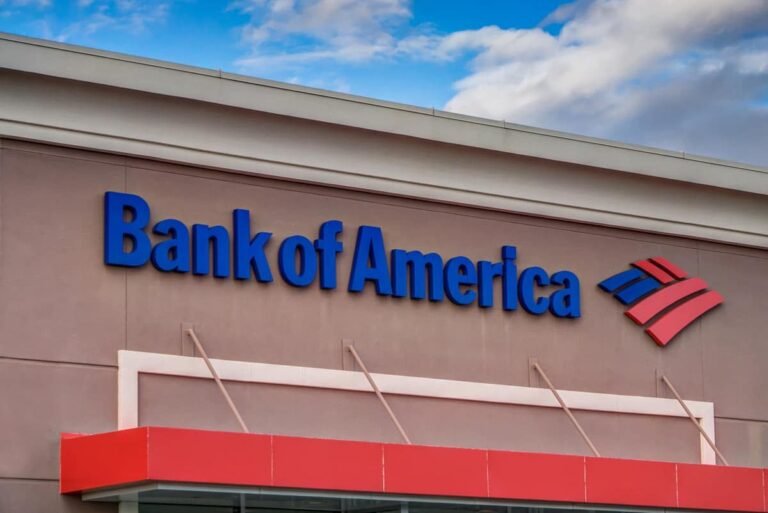In finance, seismic shifts occur now, not just because of market traits or financial guidelines but due to legal battles between enterprise giants. A new and exciting war emerged recently as Bank of America Faces A New Lawsuit from UBS. This prison showdown has captured the attention of legal specialists, buyers, and economic analysts alike, as it pits two of the most powerful banking institutions against each other in a high-stakes contest. This weblog post aims to unravel the complexities of this lawsuit, discover its implications, and offer insights into the ability to ripple consequences throughout the financial landscape.
Expect to gain comprehensive know-how of the historical past and context of this lawsuit, the criminal strategies hired by each party, the market’s response, and the viable destiny implications for the financial region. For the ones eager to live knowledgeable on outstanding legal disputes that would reshape the enterprise, this text will offer valuable insights and evaluation.
Table of Contents
Background Context
The lawsuit’s origins may be traced back to a series of financial transactions that have been under scrutiny for some time. At the coronary heart of the matter is an alleged breach of settlement, wherein UBS claims that Bank of America did not honor positive phrases agreed upon in previous dealings. This breach, consistent with UBS, has led to substantial monetary losses that have impacted their operations.
Both parties to the lawsuit have a long-standing history of aggressive competition, which adds a further layer of complexity to the situation. The case has raised mild questions concerning company governance and responsibility and the moral issues surrounding excessive-stakes financial agreements.
The outcome of this lawsuit holds great importance for Bank of America and UBS. A verdict in UBS’s favor ought to result in widespread economic compensation and similarly stress the connection between the 2 banking giants. Conversely, a victory for Bank of America might strengthen its status inside the enterprise while complicating UBS’s future dealings.
Legal Analysis
The prison techniques being employed by both Bank of America and UBS reflect their dedication to a favorable outcome. For Bank of America, the focus is on disproving the allegations made using UBS and demonstrating that no contractual breach occurred. Their legal group is predicted to offer evidence and testimonies contradicting UBS’s claims, potentially challenging the credibility of the accusations.
On the other hand, UBS’s criminal technique aims to substantiate its claims by providing a compelling narrative supported by documentation and professional tales. By highlighting the effect of the alleged breach on its overall monetary performance, UBS seeks to establish a strong case that justifies the repayment it may be pursuing.
This criminal warfare has broader implications for the economy. A judgment in this situation should set a precedent for how comparable disputes are treated in the future, influencing the contractual relationships among economic entities. It underscores the significance of meticulous documentation and transparency in economic agreements to prevent such conflicts.
Market Reaction
The lawsuit has not only captivated the felony community but has drawn massive interest from traders, financial analysts, and the general public. The initial announcement of the lawsuit sent ripples through the inventory marketplace, affecting the inventory prices of both Bank of America and UBS. Investors, clearly cautious, carefully tracked the traits to gauge the capability impact on the overall monetary performance of these establishments.
For Bank of America Faces A New Lawsuit from UBS maintaining investor self-assurance. Despite their efforts to address the prison complaints, issues regarding capability financial liabilities have contributed to fluctuations in their stock value. In evaluation, UBS’s inventory has experienced its own set of moves, pushed by expectations of a favorable decision.
Financial analysts were brief to weigh in on the lawsuit, offering varied perspectives on its implications for the enterprise. Some analysts see this as a remoted felony dispute with a confined long-term impact, while others view it as a reflection of deeper problems within the monetary sector that could set off regulatory adjustments.
Future Implications
Looking ahead, the feasible effects of this lawsuit convey considerable weight for both Bank of America and UBS. Should UBS be successful, the economic ramifications for Bank of America may be massive, doubtlessly affecting its reputation, market function, and bottom line. This scenario may cause different financial institutions to reevaluate their contractual practices to mitigate future risks.
Conversely, a victory for Bank of America ought to toughen the company’s resilience and bolster investor self-belief. However, it is important to recognize that the resolution of this lawsuit might not mark the end of challenges for either birthday party. There might be lasting implications for their corporate collaborations, strategic partnerships, and industry dynamics.
Beyond the instantaneous parties involved, this lawsuit serves as a reminder of the complexities inherent in economic transactions and the need for robust legal frameworks. It underscores the significance of maintaining transparent conversation, moral practices, and diligent oversight to ensure the stability and integrity of the financial zone.
Conclusion
In this unfolding prison saga, the stakes are undeniably excessive as Bank of America Faces A New Lawsuit from UBS. The complicated web of prison arguments, market reactions, and potential consequences highlights the multifaceted nature of disputes in the international monetary world. For legal professionals, traders, and economic analysts, this case offers a unique opportunity to gain insights into the intricacies of corporate litigation and its effect on the financial panorama.
While the destiny remains uncertain, this criminal war reminds us of the importance of vigilance, duty, and ethical behavior inside the financial region. As the legal complaints persist, all eyes are on Bank of America and UBS, awaiting the very last verdict and its subsequent repercussions.
For those interested in exploring this topic further, we encourage you to engage along with your insights and thoughts on this ongoing legal battle. The implications of this lawsuit are ways-attaining, and your views are precious in shaping the discourse surrounding the future of the monetary industry.


